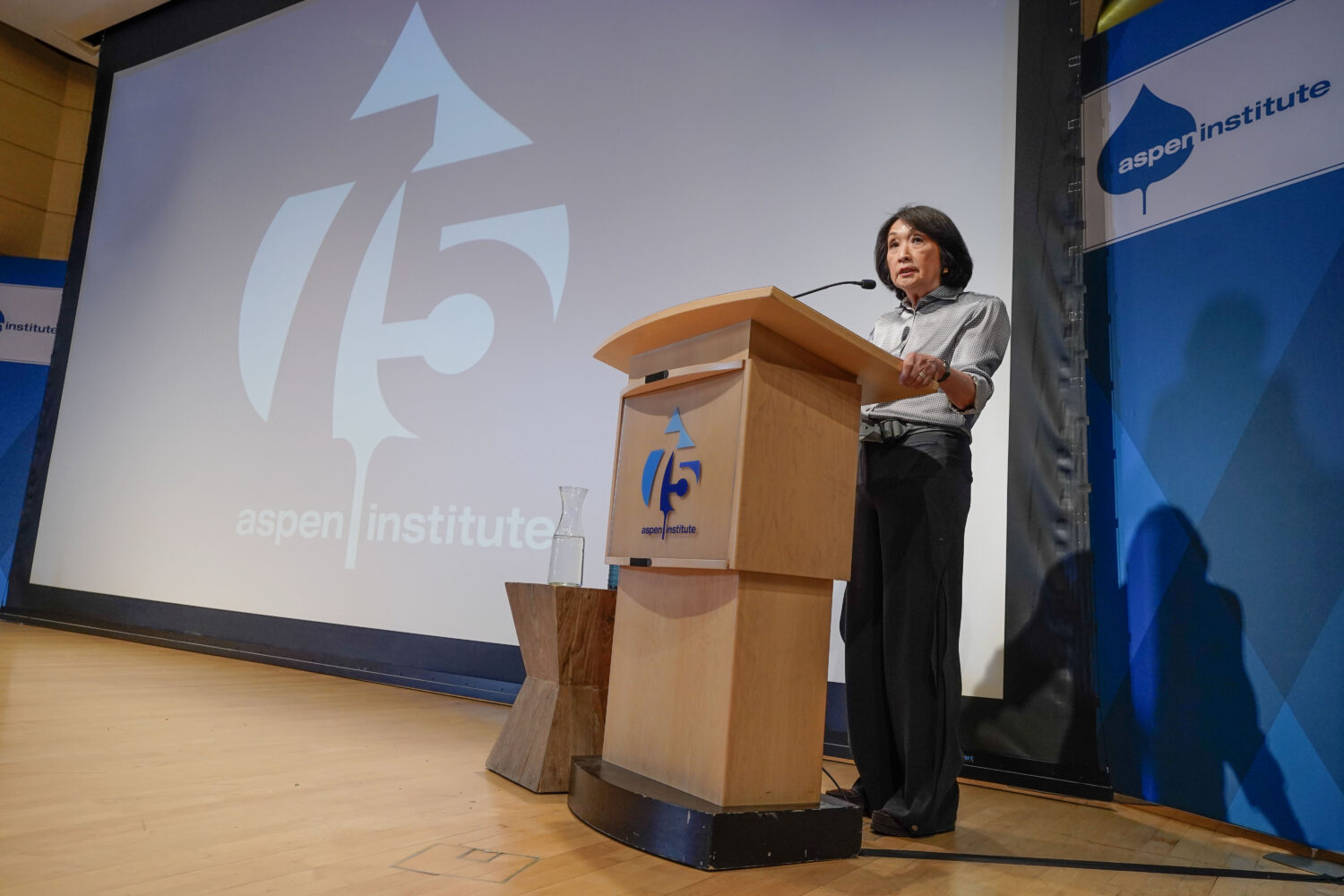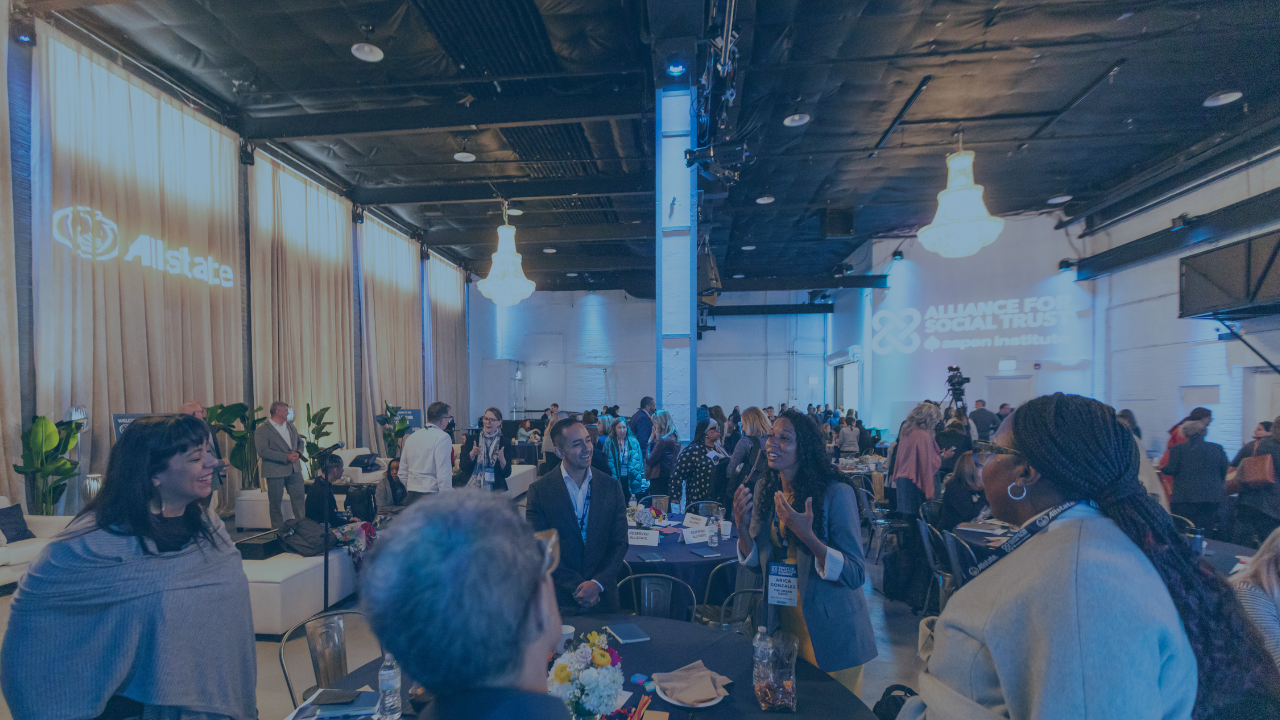Resource Roundup
Artificial Intelligence
Subscribe to Our Newsletter
Resource Roundup, by the Economic Opportunities Program, is an editorial take on the latest articles and reports that shape our thinking on economic opportunity.

Maxwell Johnson
Research Associate
The story of economic growth in the United States is often described as a process of “creative destruction.”
New technologies and ways of doing business will supplant old ones, theorized Joseph Schumpeter, the economist behind the term, and the resulting churn powers long-term economic dynamism. From this perspective, America’s phoenix-like economic development might seem like a natural process. For workers and communities, though, unexpected economic shifts can upend lives.
With the rapid growth of artificial intelligence in the workplace, we may be at a new technological inflection point, though it is too early to be certain of its effects on the workforce and economy. To some, AI could mean a companion in decision making, granting expertise to a broader set of workers and enhancing that of specialists. Others worry that AI will eliminate creative tasks from jobs, turning once meaningful work into drudgery. It appears that white collar workers are most likely to be affected, unlike past bouts of automation, and early reports and research suggest that recent college graduates are finding themselves in competition with AI for entry-level jobs.
This edition of Resource Roundup offers insight into the workers who AI will impact and the ethical implications. Research from Pew has identified which workers are most likely to encounter AI on the job and surveyed their opinions. Women may be at particular risk as AI uptake grows, writes the World Economic Forum’s Silja Baller. For Brookings, Molly Kinder discusses how the Catholic Church has approached AI through the lens of its commitment to economic justice. Finally, ethicist Rosalie Waelen lays out the philosophical arguments for and against the replacement of labor by AI.
Pew Research Center | (1) Which U.S. Workers Are More Exposed to AI on Their Jobs? & (2) U.S. Workers Are More Worried Than Hopeful About Future AI Use in the Workplace
AI is poised to upset the traditional conception of the workers and jobs affected by automation. Nearly a fifth of US workers are in positions considered “exposed” to AI, especially those in high-earning white-collar jobs, according to 2023 research by Pew. While the extent to which AI will replace workers or help them complete their tasks is not yet known, survey data released this February show that many workers worry that it will harm job prospects.
Learn more about how AI may change work and the perceptions of workers.
Fast Company | How AI is making workplace gender gaps worse
Women are less likely than men to be helped by AI in their jobs and are also at greater risk of being replaced by the technology, recent research has found. This trend mirrors the broader underrepresentation of women in STEM jobs, writes the World Economic Forum’s Silja Baller. However, if properly implemented in hiring and evaluation processes, AI can help reduce subjective bias against female workers, Baller argues.
Find out more in Fast Company about the promise and pitfalls that AI holds for female workers.
Brookings | The unexpected visionary: Pope Francis on AI, humanity, and the future of work
AI will change — and, in some cases, already is changing — how work is done, but much uncertainty remains. Under the late Pope Francis’ leadership, the Catholic Church took on some of the ethical questions posed by the advent of AI, as part of the Church’s longstanding focus on human dignity in economic matters.
Building from remarks she delivered at the Vatican, Molly Kinder draws attention to concerns that AI may degrade the quality of a broad set of jobs — or even eliminate them. Given this, there is a need to adapt our labor standards and safety net for the disruption that AI might cause in the workforce and an imperative to identify and protect tasks that should remain uniquely human.
Read Kinder’s full essay for Brookings here.
Philosophy Compass | The Desirability of Automizing Labor: An Overview
As AI has gained a greater place in everyday life and is set to do the same in our workplaces, philosophy has taken on the task of devising frameworks to better understand what it all might mean for us. AI could affect the aspects of jobs that provide meaning, like creative tasks, and some fear that the technology will wipe out many jobs, with the counterargument being that, historically, technological innovation also creates new jobs.
Rosalie Waelen, a postdoctoral researcher at the University of Bonn, explores these issues from various philosophical perspectives, in a piece published in Philosophy Compass. Read her full article here.
In this month’s Resource Roundup, learn about the workers most likely to encounter AI on the job, its ethical implications, and the considerations necessary for ensuring that job quality is prioritized.








